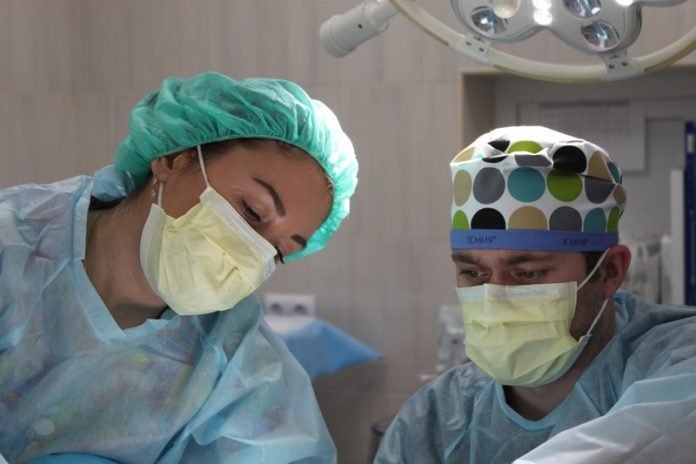
In a new study, researchers found that covert—or ‘silent’ – strokes are common in older people after they have elective, non-cardiac surgery.
The strokes can double their risk of cognitive decline one year later.
The research was conducted by a team from McMaster University.
While an overt stroke causes obvious symptoms, such as weakness in one arm or speech problems that last more than a day, a covert stroke is not obvious except on brain scans, such as MRI.
Each year, approximately 0.5% of the 50 million people age 65 years or greater worldwide who have major, non-cardiac surgery will suffer an overt stroke.
But until now little was known about the incidence or impacts of silent stroke after surgery.
In the new study, the team examined 1,114 patients aged 65 years and older from 12 centers in North and South America, Asia, New Zealand, and Europe.
All patients received an MRI within nine days of their surgery to look for imaging evidence of silent stroke.
The research team followed patients for one year after their surgery to assess their cognitive capabilities.
They found that ‘silent’ covert strokes are actually more common than overt strokes in people aged 65 or older who have surgery.
About one in 14 people over age 65 who had elective, non-cardiac surgery had a silent stroke.
This suggests that as many as three million people in this age category globally suffer a covert stroke after surgery each year.
In addition, people who had a silent stroke after surgery were more likely to experience cognitive decline, peri-operative delirium, overt stroke or transient ischemic attack within one year, compared to patients who did not have a silent stroke.
The findings provide important insights into the development of vascular brain injury after surgery and adds to the mounting evidence of the importance of vascular health on cognitive decline.
Future work needs to find out how to prevent cognitive decline after surgery.
The lead author of the study is Dr. PJ Devereaux, a cardiologist at Hamilton Health Sciences (HHS).
The study is published in The Lancet.
Copyright © 2019 Knowridge Science Report. All rights reserved.



